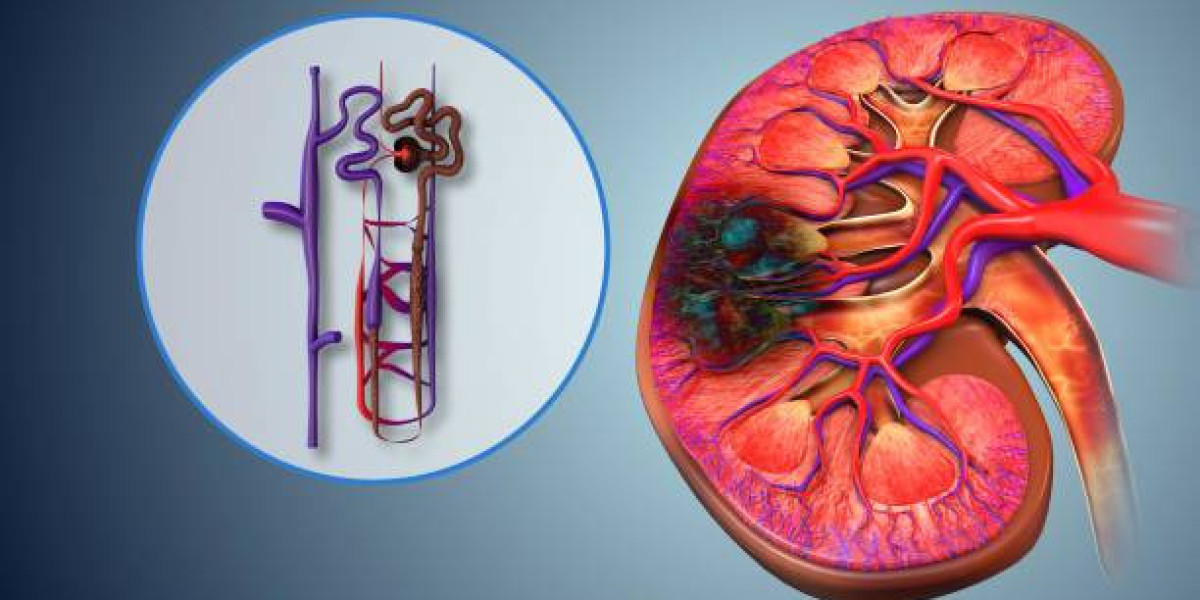Diabetic kidney disease (DKD), also known as diabetic nephropathy, is one of the most common complications of diabetes and a leading cause of kidney failure. It occurs when high blood sugar levels damage the kidneys’ filtering system, leading to a gradual decline in kidney function. As diabetes rates continue to rise, particularly in the United States, it’s crucial for individuals with diabetes to understand how to manage the progression of kidney disease effectively. While conventional treatments are essential, integrative approaches that combine traditional medicine with lifestyle changes, nutrition, and natural therapies can provide a more holistic approach to managing DKD. This article explores how an integrative approach can help individuals with diabetic kidney disease manage their health and potentially slow the progression of the disease.
The Importance of Early Detection
Before delving into integrative approaches, it’s important to understand that early detection of diabetic kidney disease is key to preventing or delaying kidney failure. Regular monitoring of kidney function through blood tests, urine tests (for protein), and blood pressure checks is essential for anyone with diabetes. If diabetic kidney disease is diagnosed early, lifestyle and treatment adjustments can significantly improve the outcome and help preserve kidney function.
Traditional Treatment Options for DKD
The primary goal in managing diabetic kidney disease is to control blood sugar levels, blood pressure, and reduce protein in the urine. Standard medical treatments include:
- Blood Sugar Control: Keeping blood sugar levels within the recommended range is crucial in preventing further kidney damage. This is usually managed with insulin, oral medications, and careful monitoring of diet and exercise.
- Blood Pressure Management: High blood pressure accelerates kidney damage. Medications such as ACE inhibitors or angiotensin receptor blockers (ARBs) are commonly used to lower blood pressure and protect the kidneys.
- Dietary Modifications: A kidney-friendly diet is essential. This includes managing protein intake to reduce strain on the kidneys, monitoring sodium and potassium levels, and ensuring balanced nutrients.
While these treatments are crucial, they are most effective when combined with an integrative approach that focuses on overall well-being and prevention.
Integrative Approaches to Managing Diabetic Kidney Disease
- Diet and Nutrition
Diet plays a critical role in managing diabetic kidney disease. The right dietary choices can help control blood sugar levels, reduce kidney strain, and improve overall health. Integrative nutrition approaches focus on whole foods, anti-inflammatory diets, and reducing processed foods that can harm the kidneys.
- Anti-Inflammatory Foods: Chronic inflammation is a key factor in the progression of diabetic kidney disease. Foods rich in omega-3 fatty acids, such as fatty fish (salmon, mackerel) and flaxseeds, can help reduce inflammation and protect the kidneys.
- Low-Protein Diet: While protein is essential for health, excessive protein can worsen kidney function in people with DKD. A moderate or low-protein diet may help reduce the workload on the kidneys.
- Reducing Sodium: Lowering salt intake is crucial for managing blood pressure and preventing fluid buildup, which is common in kidney disease. A diet that focuses on fresh fruits, vegetables, and herbs (rather than salt) can help manage both blood pressure and kidney health.
- Low-Glycemic Foods: Foods with a low glycemic index (GI) help regulate blood sugar levels more effectively than high-GI foods. Whole grains, legumes, and non-starchy vegetables should be prioritized to control blood sugar spikes and support kidney function.
- Herbal and Natural Supplements
Certain herbs and supplements have been shown to support kidney health and help manage diabetes. While these should never replace conventional treatments, they can complement traditional medicine and potentially improve kidney function.
- Berberine: An herb with anti-inflammatory and anti-diabetic properties, berberine has shown promise in lowering blood sugar levels and improving insulin sensitivity. Studies suggest it can help reduce kidney damage caused by diabetes.
- Turmeric: Curcumin, the active compound in turmeric, has potent anti-inflammatory and antioxidant properties. It may help protect the kidneys from the damaging effects of diabetes by reducing oxidative stress and inflammation.
- N-Acetylcysteine (NAC): NAC is an antioxidant that has been shown to protect against kidney damage and reduce inflammation. It can support kidney function and potentially delay the progression of diabetic nephropathy.
- Cinnamon: This spice has been used for centuries in traditional medicine for its ability to regulate blood sugar levels. Studies show that cinnamon can help improve insulin sensitivity and may have protective effects on the kidneys.
Before using any supplements, it’s crucial to consult with a healthcare provider to ensure they are safe and appropriate for your condition, especially when managing kidney disease.
- Exercise and Physical Activity
Regular physical activity is an important part of an integrative approach to managing diabetic kidney disease. Exercise helps lower blood sugar, control blood pressure, and improve cardiovascular health, all of which contribute to kidney health.
- Aerobic Exercise: Activities like walking, swimming, or cycling can improve circulation and overall kidney function. Aim for at least 150 minutes of moderate exercise each week.
- Strength Training: Building muscle mass through strength training can help improve insulin sensitivity and support healthy glucose metabolism. Light weightlifting or bodyweight exercises can be a great addition to a fitness routine.
- Stress Reduction: Chronic stress can worsen blood sugar levels and hypertension, both of which impact kidney health. Practices like yoga, deep breathing, and meditation can help manage stress and improve overall health.
- Mind-Body Therapies
Integrating mind-body therapies, such as mindfulness and relaxation techniques, can play a significant role in managing the emotional and psychological stress that often accompanies chronic kidney disease. Managing stress through techniques like meditation, deep breathing, and guided imagery can help lower blood pressure and support kidney health.
- Sleep and Rest
Getting adequate rest is essential for managing diabetes and maintaining kidney health. Sleep deprivation can negatively affect blood sugar regulation and contribute to high blood pressure. Aim for 7-8 hours of restful sleep each night to support both kidney function and overall well-being.
The Role of Healthcare Professionals
Integrative approaches should always be implemented in collaboration with a healthcare team, including endocrinologists, nephrologists, dietitians, and other specialists. Monitoring kidney function regularly and adjusting treatment plans is vital to ensuring the best possible outcome.
Conclusion
Managing diabetic kidney disease requires a multifaceted approach that goes beyond medications alone. By integrating proper nutrition, natural supplements, regular exercise, and stress reduction techniques, individuals with DKD can take a more proactive role in protecting their kidney health. Resources like Southern OKC provide valuable guidance and support for those exploring holistic strategies alongside conventional treatment. This comprehensive approach, when combined with medical care, offers the potential to slow the progression of kidney damage, reduce complications, and improve quality of life. Always consult with your healthcare provider before making significant changes to your treatment plan, and consider working with an integrative medicine professional who can tailor a plan to suit your specific needs.








